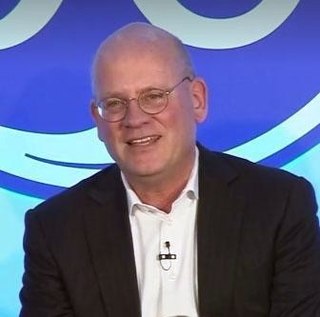A Quote by John L. Flannery
Energy is our largest business in India but still has huge room to grow in new areas like renewables and distributed energy - as well as traditional gas and steam turbines and services.
Related Quotes
The transition from coal, oil, and gas to wind, solar, and geothermal energy is well under way. In the old economy, energy was produced by burning something - oil, coal, or natural gas - leading to the carbon emissions that have come to define our economy. The new energy economy harnesses the energy in wind, the energy coming from the sun, and heat from within the earth itself.
In the near future, despite the development of alternative energy, when you look at the economics and environmental standards, then there's no other source of primary energy in the world than natural gas. Well, perhaps there is nuclear energy but there are also a lot of issues there and there are opponents of nuclear energy. Gas doesn't have those opponents. But there is a country that is, obviously, the world leader in gas reserves. That's our country, the Russian Federation.
Historically, the United States has had a wonderful energy policy. We're blessed with a diversity of resources. We have oil. We have gas. We have coal. We have nuclear. And renewables. And as a result, one of our biggest competitive advantages has been affordable energy. You need a strong economy and you need affordable energy to fuel that economy.
Falling prices are driving renewable energy investment in India, which rose 13 per cent last year and is expected to surpass 10 billion dollars in 2015. Adoption of increasingly cost-effective renewables holds the genuine promise of a new age of socio-economic development, powered by clean, increasingly decentralised, and sustainable energy. The opportunity for India is tremendous.
Through Duke Energy's strong balance sheet and electric generation expertise, and Piedmont's understanding of natural gas markets and proficient operations, the combined company will be well-positioned for a future that may require additional natural gas infrastructure and services to meet the needs of our customers.
Energy, health care and education are just three examples of areas in which information and information management are critically important. How are we using our energy? What appliances in homes or business are consuming the most energy? When do they consume it? Can the load be shifted? How efficient are these devices?
Improved energy productivity and renewable energy are both available in abundance—and new policies and technologies are rapidly making them more economically competitive with fossil fuels. In combination, these energy options represent the most robust alternative to the current energy system, capable of providing the diverse array of energy services that a modern economy requires. Given the urgency of the climate problem, that is indeed convenient.

































